News
World Environment Day 2023: The WEF Nexus website goes live!
Today the 5th of June, we commemorate World Environment Day 2023 by launching the website for the research project “Nexusing Water, Energy and Food to Increase resilience in the Cape Town Metropolitan Area”. World Environment Day was first held in 1973 at the ‘Stockholm Conference on the Human Environment’ by the United Nations, seeking to integrate human interactions and the environment. Since then, World Environment Day has been used as a platform to raise awareness on environmental issues and encourage action to protect our dear planet. Every year, the focus is on a different theme. This provides a forum for governments, NGO’s, and communities to advocate for a specific cause. This year, the focus is on plastic pollution.
The WEF Nexus project aims to explore ways to improve the capacity of Cape Town’s urban residents and authorities to prepare for, cope with, and learn from resource crises in the city through more integrated planning and governance, exploring the ways in which the city could one day achieve water, energy and food security. One way to do this, is by beating plastic pollution.
The durability and cost-effectiveness of plastic production have turned it into a popular product used in a myriad of ways, but the use of single-use plastics has increased beyond measure to the point we are no longer capable of managing our own plastic waste.
Did you know that…?
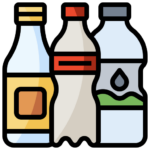
…Plastic production is both an energy and water hungry process. According to WWF South Africa, it can take as much as 26 litres of water to produce one single plastic bottle, plus 3 litres of water to make one litter of water to fill the same bottle. Moreover, scientists estimate that 75% of all marine litter is made up of plastic and that eight million tonnes of plastic waste is deposited into our oceans every year. They estimate that, by 2050, there will be more plastic than fish in the ocean, if measured by weight.
…Putting together all the energy that’s required along the different manufacturing and distribution processes,  scientists calculated that it takes between 5.6 and 10.2 million joules of energy per litre of bottled water. That’s up to 2000 times more energy than what’s required to produce the same quantity of water for our taps. In other words, the energy needed to produce a single plastic bottle of water is enough to power the average South African home between 1.5 hours and 2.8 hours.
scientists calculated that it takes between 5.6 and 10.2 million joules of energy per litre of bottled water. That’s up to 2000 times more energy than what’s required to produce the same quantity of water for our taps. In other words, the energy needed to produce a single plastic bottle of water is enough to power the average South African home between 1.5 hours and 2.8 hours.
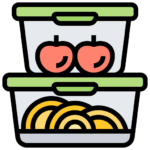
…With the increased usage of plastic in our food packaging, ingestion of micro plastics has also increased. Plastic pollution ends up everywhere from marine animals, to the fruit and vegetables that we eat. Ingesting microplastics in great quantities can lead to different health problems, with the least severe being inflammation and other allergic reactions. A study done along the coast of Cape Town found that 98% of Mussels contained fibres resembling micro plastics.
It is estimated that South Africa generates 41kg of plastic waste per capita, per year— the global average is 29kg a year. South Africa is 11th worst sea polluter in the world, realising more plastic into the ocean that other heavy and populous polluters such as India or Brazil.Only about half of the plastic consumed by South Africansis disposed of properly. According to the WWF South Africa, the amount of litter washing up daily in Table Bay has tripled from 1994 to 2011, far outstripping the 60% growth in Cape Town’s human population over the same period.
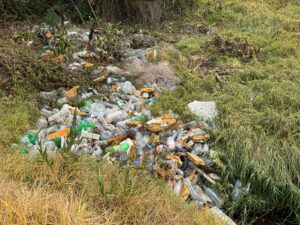
Clogged up river in Stellenbosch.
However, not all plastic pollution is found in the sea. On site visit to the Water Hub in Stellenbosch, the WEF Nexus team was able to see just how bad plastic pollution can get. The river in the photo below can hardly be seen, as it’s been clogged up by plastic bottles coming from the informal settlement upstream. Staff at the Water Hub don’t have the manpower to constantly clean the river.
In the same way, clogged stormwater drains are also a huge issue, as this increases the risk of flooding. The plastic that does manage to get through, ends up in rivers or the sea. During a site visit to the informal settlement of Jo Slovo, the team had the opportunity to see how lack of waste collection services and a good recycling culture affect the residents of the area, and ultimately the city as a whole.
To learn more about you can do to beat plastic p0llution in Cape Town, and in the world, go check out the World Environment Day’s official website, where they have plenty of other interesting facts and detailed information on the steps YOU can take today.
This World Environment Day 2023 is a reminder that plastic pollution matters and concerns all. We all have to take action. It is time to accelerate this action and transition to a circular economy. It is time to #BeatPlasticPollution and #IncreaseResillience.



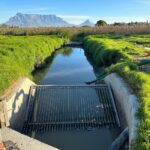
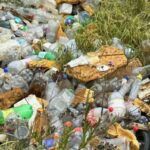
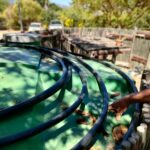
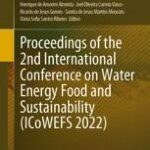
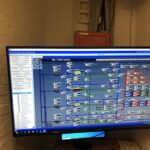


 © 2023 All rights reserved.
© 2023 All rights reserved.

